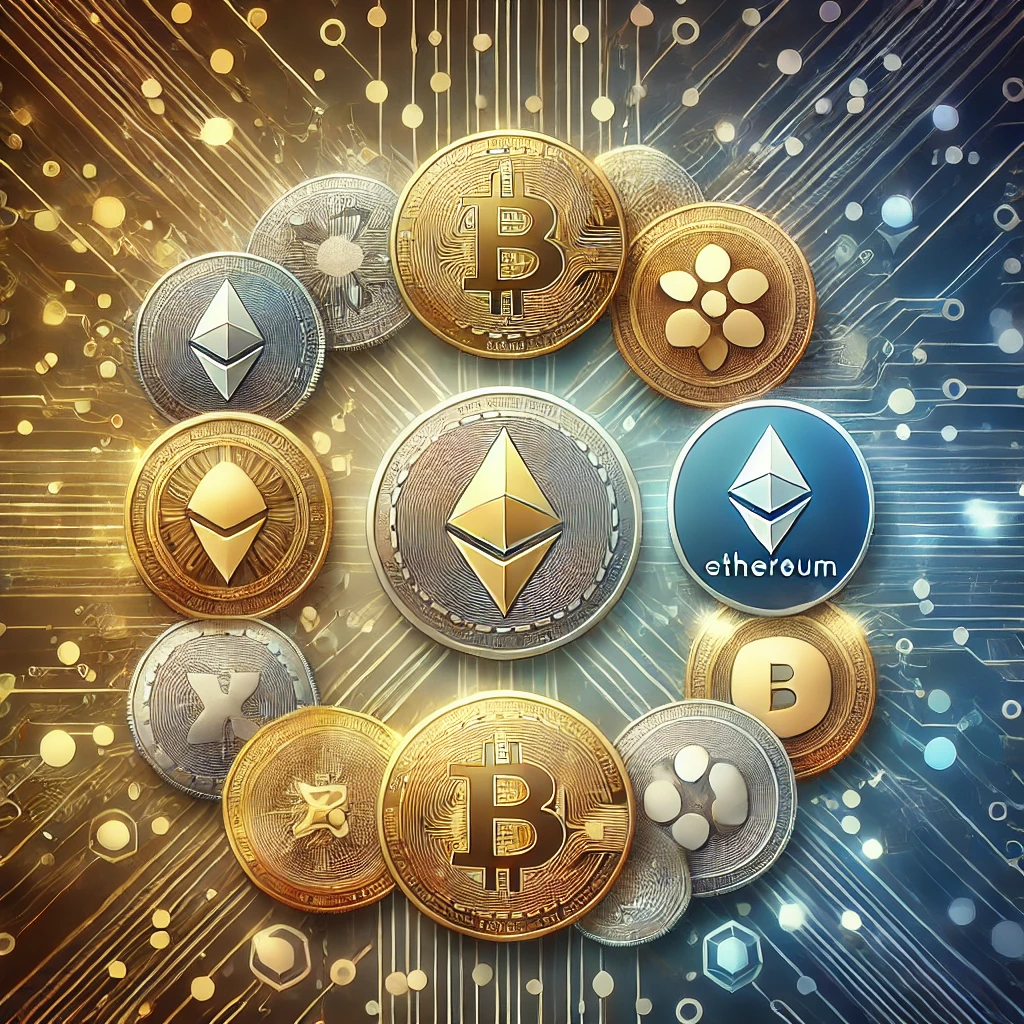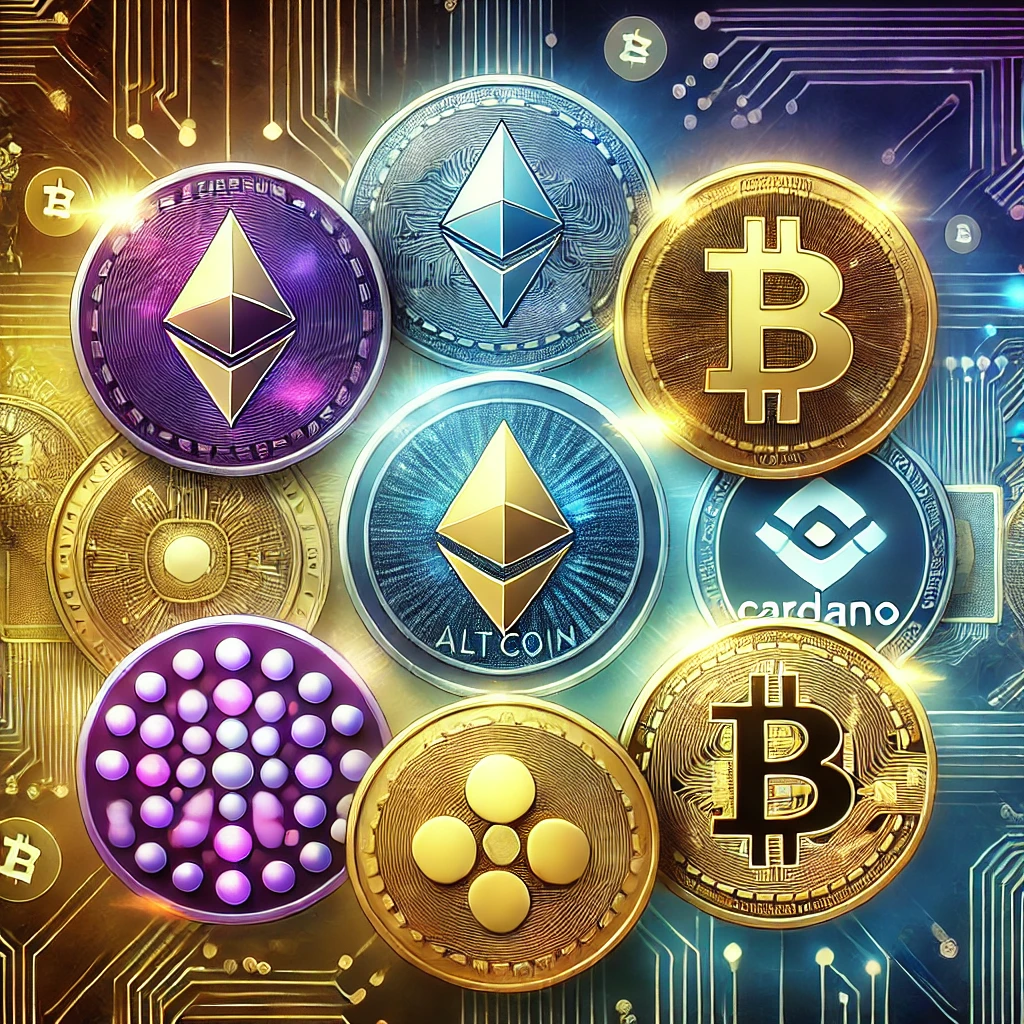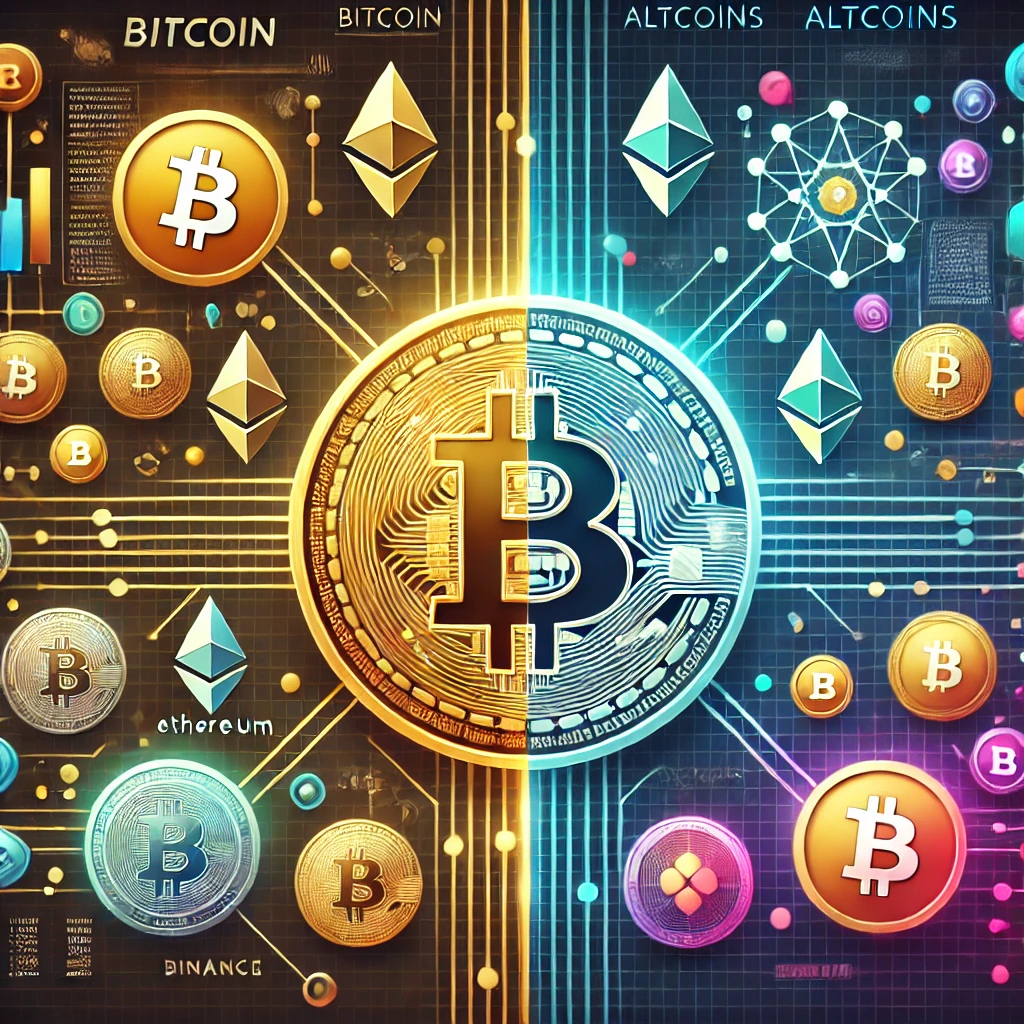
Altcoins: Unlock the Potential of Crypto Beyond Bitcoin
The emergence of Bitcoin and its underlying blockchain technology revolutionized the financial industry and opened the door to countless innovations. Among these is the rise of altcoins, a term encompassing all cryptocurrencies other than Bitcoin. With a vast and dynamic landscape, altcoins play a crucial role in shaping the broader crypto ecosystem. According to CoinMarketCap, as of 2022, there are approximately 10,000 active altcoins in circulation, collectively valued at $606 billion. In this article, we delve into the definition of altcoins, their distinct types, and their role in the ever-evolving cryptocurrency market.

Article Summary
🪙 Altcoin refers to all cryptocurrencies apart from Bitcoin. The term combines “alternative” and “coin” and is often shortened to “alt.”
💵 Altcoins are unique crypto projects offering different functions, roles, and value propositions. With a market capitalization of $606 billion (as of August 4, 2022), altcoins account for a significant share of the cryptocurrency market.
⚖️ Altcoins differ from Bitcoin in their use cases, often addressing gaps in Bitcoin’s functionality. They include categories like stablecoins, smart contract platforms, Layer-2 solutions, and DeFi tokens.
🧠 Investing in altcoins carries higher risks due to their greater price volatility. Thorough research is essential before purchasing any altcoin assets.
Understanding Altcoins
Altcoins represent all cryptocurrencies other than Bitcoin, offering innovative solutions and diverse functionalities within the crypto market. The term “altcoin” combines “alternative” and “coin,” reflecting their role as alternatives to Bitcoin. While Bitcoin primarily serves as a store of value, altcoins power various blockchain applications, including decentralized finance (DeFi) and smart contract platforms.
The altcoin market is vast, with Ethereum standing out as the leading altcoin since its launch in 2015. Ethereum’s programmable blockchain introduced smart contracts, spurring the development of DeFi and other blockchain-based applications. Altcoins also play a key role during market upswings, particularly during “altcoin seasons” or “altseasons,” when altcoins outperform Bitcoin in price growth. Tools like the Altcoin Season Index can help identify these trends.
Differences Between Bitcoin and Altcoins
Bitcoin and altcoins share the same blockchain roots but have distinct purposes. Understanding their differences is key to recognizing the value altcoins bring to the crypto world. Bitcoin primarily serves as a decentralized medium of exchange and a secure store of value. Altcoins, however, go beyond these functions.
Bitcoin serves two main purposes:
- A Store of Value: Often referred to as “digital gold.”
- A Medium of Exchange: Facilitating peer-to-peer transactions.
Altcoins, on the other hand, address Bitcoin’s limitations with a broader range of functionalities:
- Ethereum (ETH): Powers decentralized applications and smart contracts.
- (USDT, USDC): Provide price stability by pegging their value to fiat currencies.
- Tokens (UNI, AAVE): Govern decentralized financial platforms.
These differences highlight altcoins’ flexibility in enabling innovation beyond Bitcoin’s use cases.

Advantages of Altcoins
Altcoins bring diversity to crypto investments, offering more than just financial gains. Here’s why they deserve a place in your portfolio.
Higher Growth Potential
Altcoins often experience steeper price increases than Bitcoin during bull markets, offering significant profit opportunities.
Functional Utility
Many altcoins serve practical purposes beyond investment:
- Ethereum (ETH): Used for transaction fees.
- ApeCoin (APE): Grants governance rights in its ecosystem.
Innovative Solutions
Altcoin projects often address key challenges in the crypto industry, such as scalability, security, and efficiency.
Risks of Altcoin Investments
While altcoins offer exciting opportunities, they come with unique risks that every investor should understand.
Price Volatility
Altcoins are more prone to drastic price fluctuations, with some losing up to 90% of their value during bear markets.
Overwhelming Options
With thousands of altcoins available, choosing projects with real potential can be daunting. Many altcoins gain temporary popularity but fail to sustain long-term relevance.
High Risk
Altcoins generally carry higher risks compared to Bitcoin. Researching a project’s fundamentals and utility is crucial before investing.
Categories of Altcoins
Altcoins come in various forms, each serving specific roles in the blockchain ecosystem. Let’s explore the main categories.
Stablecoins
These cryptocurrencies are pegged to fiat currencies to maintain a stable value. Examples: USDT, USDC, IDRT.
Smart Contract Platforms (Layer-1)
Blockchains that enable decentralized applications and their ecosystems. Examples: Ethereum (ETH), Avalanche (AVAX).
Layer-2 Solutions
Designed to improve the scalability of parent blockchains by offering faster and cheaper transactions. Examples: Polygon (MATIC), Optimism (OP).
DeFi Tokens
Governance tokens for decentralized financial platforms, enabling lending, borrowing, and other financial services. Examples: Uniswap (UNI), Curve (CRV).
How to Choose Altcoins
Picking the right altcoin can feel overwhelming, but focusing on these critical factors can help you make informed decisions.
Selecting the right altcoins for investment involves considering key factors:
Technology: Evaluate the unique features of each altcoin, such as Ethereum’s decentralization or Solana’s transaction speed.
Community and User Base: Look for active and engaged user communities.
Tokenomics: Favor altcoins with equitable token distribution and a transparent supply model.
Utility: Focus on altcoins with practical applications that drive demand.
How to Invest in Altcoins Safely
Safubit is an ideal platform for buying, storing, and trading altcoins. Its seamless integration with popular wallets like Metamask ensures a smooth user experience. Whether you’re interested in Ethereum (ETH), Solana (SOL), or ADA, Safubit provides a trusted environment for your transactions.
You can also deepen your knowledge of crypto through various articles on Safubit Academy. All articles on Safubit Academy are designed for educational and informational purposes only and are not intended as financial advice.
Follow our social media for more updates :
X : https://x.com/safubit
Medium : https://medium.com/@safubit.exchange


 January 14, 2025
January 14, 2025